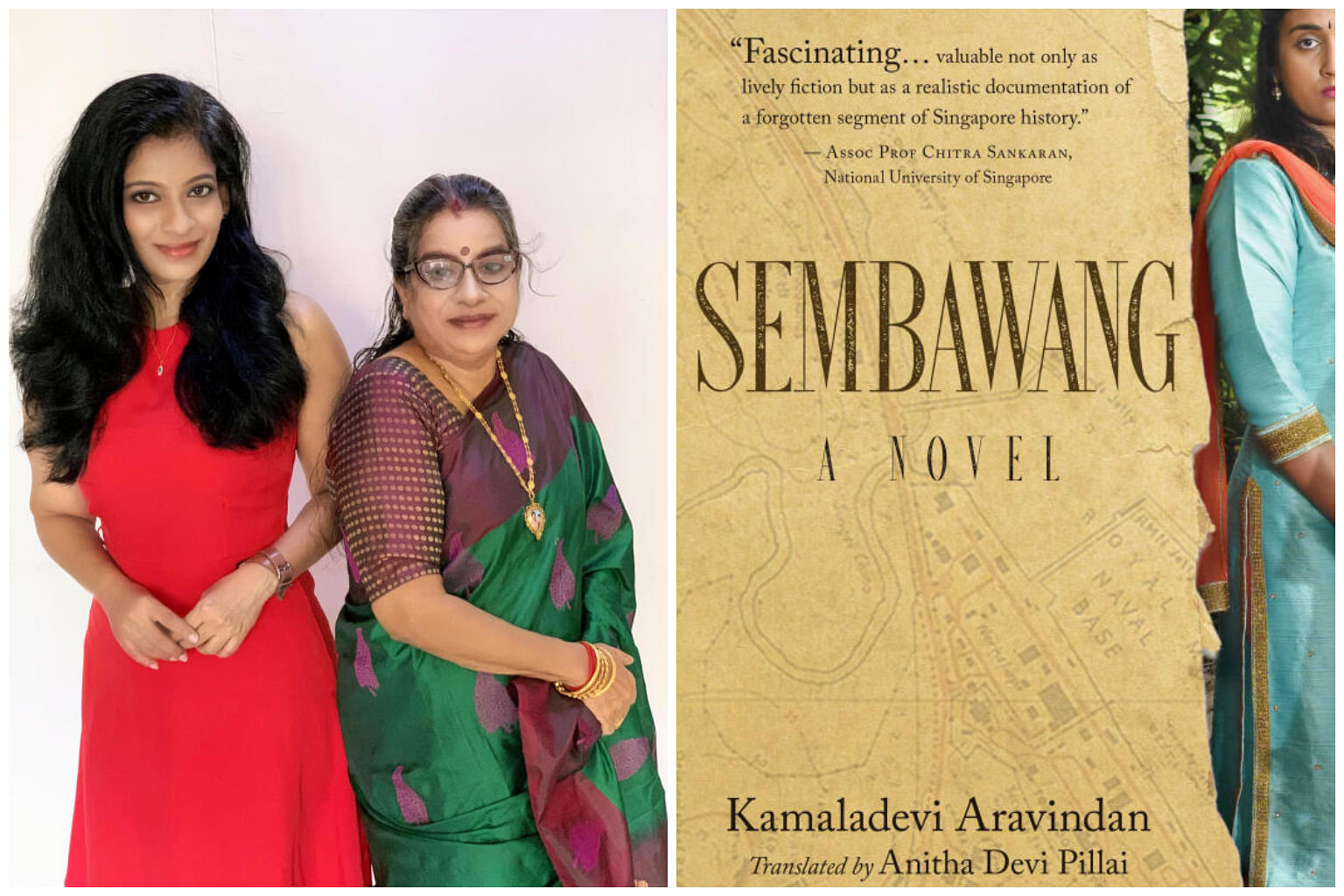Book review: Tamil novel about 1960s Sembawang teems with life
Sign up now: Get ST's newsletters delivered to your inbox

Sembawang: A Novel by By author Kamaladevi Aravindan, and translated by her daughter Anitha Devi Pillai.
PHOTO: MARSHALL CAVENDISH/COURTESY OF ANITHA DEVI PILLAI
FICTION
SEMBAWANG: A NOVEL
By Kamaladevi Aravindan, translated by Anitha Devi Pillai
Marshall Cavendish/Paperback/320 pages/$23.01/Available here
4 out of 5
At the end of her author's note, Kamaladevi describes the novel as her attempt to capture, among other things, "the life experiences of many from my soil".
And she has pulled it off, telling in riveting fashion the stories of Tamil and Malayalee men and women in 1960s Sembawang and conjuring up the texture of their lived experiences.
The book feels like a history-from-below project, with its focus on the voices that are not often captured in the usual history textbooks.
A map of Sembawang in the 1960s and old photos are included to help readers create a mental map of the place and time, while a prologue sets out the larger context of how Indians from places like Tamil Nadu were sold as indentured labour to work in Malaya (what is now Malaysia) under the British.
While the book's approach is historical, it is anything but dry. Instead, it teems with life given its evocative period details and sprawling web of characters .
The story begins with Kaali, who leaves her rubber tapper husband and young son behind in Malaya to elope with her lover to Singapore. Through her, we are introduced to various characters living in Sembawang in the 1960s, many of whom work at the British naval base there.
There is the married woman tragically attracted to a bachelor neighbour; an elderly man who survived after being sent to build the Siam Railway during World War II; and a Chinese man and an Indian woman who fall in love with each other, scandalising the village.
There are the usual tensions between husbands and wives; mothers-in-law and daughters-in-law; landlords and tenants. And then there is a shocking crime inspired by a real-life incident - two midwives at a maternity clinic are sexually assaulted by three youths.
Kamaladevi does not condemn the youths but allows them to redeem themselves later. In the same spirit of generosity, she casts a kindly eye over the foibles of the other characters, including Kaali, who eventually gains forgiveness for leaving her husband and child.
National Institute of Education applied linguist Anitha Devi Pillai, in translating her mother's book from Tamil to English, has given readers access to stories that deserve a wider audience.
While the novel is a valuable addition to books about Singapore history, it is less accomplished as a work of fiction. Given its wide cast of characters, individuals in the book are thinly sketched, including the main protagonist Kaali.
Nevertheless, it is an engrossing read that adds to our understanding of Singapore history.
If you like this, read: How We Disappeared by Lee Jing-Jing (Oneworld, 2019, $19.26, available here), in which an old woman looks back at her harrowing experience as a comfort woman during World War II.
This article contains affiliate links. If you buy through these links, we may earn a small commission.


